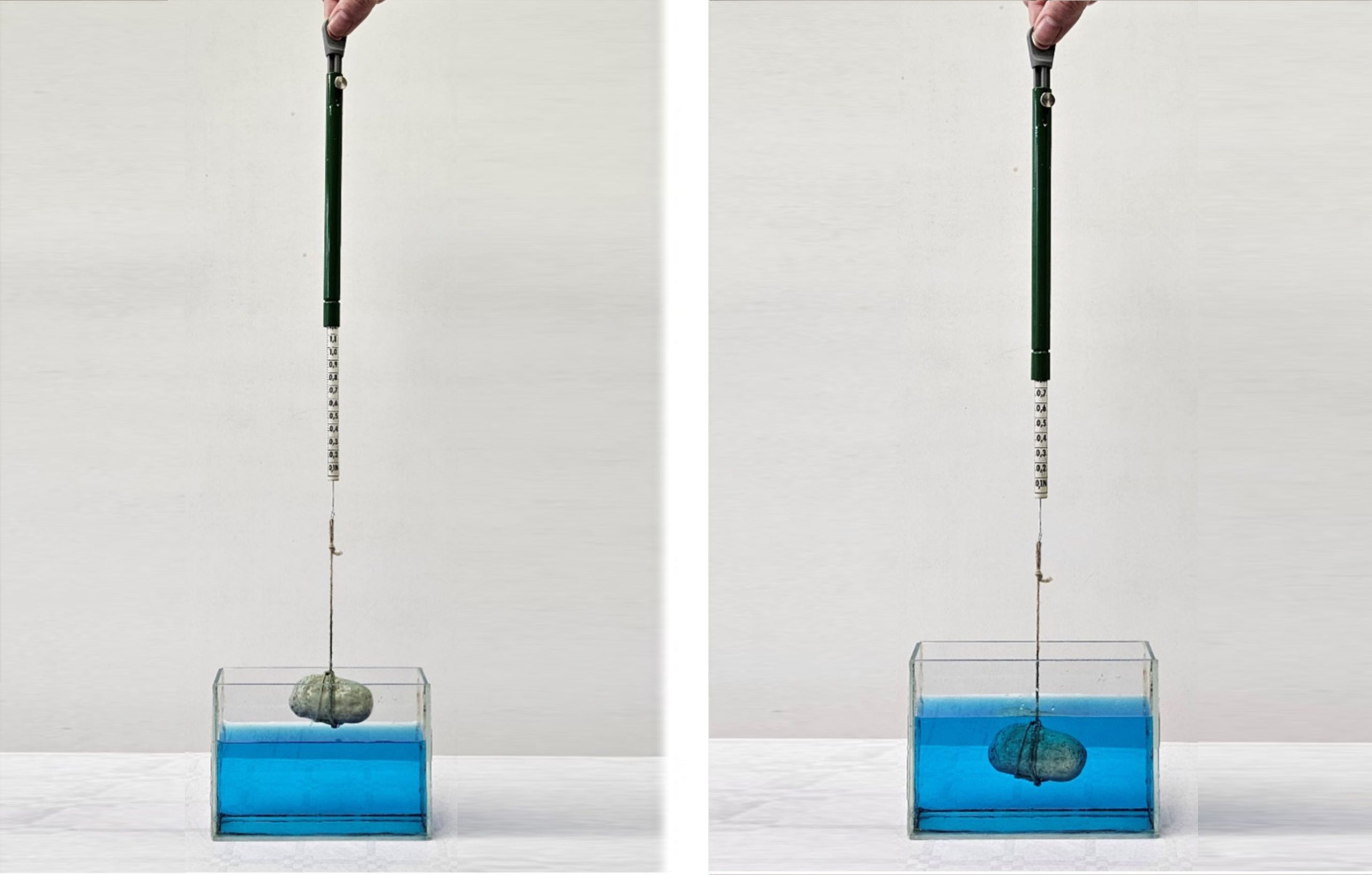Archimedes was born in a Greek colonyAn area that is controlled by or belongs to a country and is usually far away from it. on the island of Sicily. He was one of the most important mathematicians and inventors in ancient Greece. There is a famous story about him. One day he was given a task by the king. He had to check whether the crown that was made for him was really produced of pure gold. When he stepped into a tub full of water, some of it spilled over the edge. He found that the amount of water displaced was equal to the volume of the body submerged. Naked, he jumped out of the tube and shouted EurekaA Greek word meaning “I have found it!” An exclamation that accompanies a discovery..
In this way he was able to check whether the crown was really made of pure gold. He compared the volume of the crown with an equally sized piece of gold and found the goldsmith’s deception.
Buoyancy is an upward force exerted by a fluid that acts againts the direction of gravity of a partially or fully immersed object. The buoyant force is equal in magnitude to the weight of the displaced liquid.
The buoyancy force does not change even if the body is completely immersed in water and then goes deeper.
Attach the body to the force meter and read the weight of the body.
Dive the body attached to the force meter into the fluid and read the value on the force meter again. Make sure that the body does not touch the bottom of the container.
The difference between the two measured forces is equal to the buoyancy or weight of the liquid displaced by the body during immersion.
A stone sinks in water. Rock has a higher density than water. Is it easier to lift a rock in water or in air?
Observe the force meter in both pictures. What happens to the magnitude of the force on the force meter if the stone is completely immersed in water?
Mark the correct answer:
The difference between the two measured forces is equal to the buoyancy or weight of the fluid displaced by the body during immersion. Therefore, the force measured on the force meter decreases when the stone is immersed in water.
The body has a greater density than the fluid. It is fully immersed.



